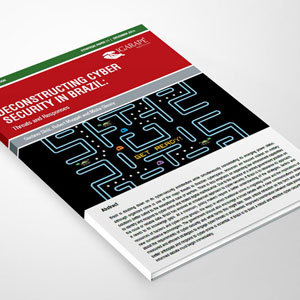Deconstructing Cyber Security in Brazil: Threats and Responses
Brazil is doubling down on its cyber-security architecture while simultaneously consolidating its emerging power status. Although organized crime is one of the major threats to Brazilian cyberspace, resources are focused instead on military solutions better suited to the exceptional case of warfare. There is less emphasis on expanding law enforcement capabilities to identify and respond to cyber-crime and related digital malfeasance. Due to the absence of a unified government position on the issue or reliable data, Brazil has evolved an imbalanced approach to cyber-security. If Brazil is to rebalance its approach, it needs to fill knowledge gaps. At a minimum, policy makers require a better understanding of the strategies, tactics and resources of hackers and cyber-crime groups, the ways in which traditional crime is migrating online and the implications of new surveillance technologies. The government should also encourage a broad debate with a clear communications strategy about the requirements of cyber-security and what forms this might take. More critical reflection on the form and content of measured and efficient strategies to engage cyber threats is also needed. Improved coordination between state police forces to better anticipate and respond to cyber-crime is essential. If Brazil is to build a robust and effective cyber-security strategy, an informed debate must begin immediately.
VIEW PDF


